It have not just solely been all the good reviews and blog-posts about Richard Jeske´s sailing school Well Sailing leading me to book all the courses for my own yachtmaster-classes here (you my read the full article here). It was also the person of Richard himself whom I was able to get to know more personally during the Hanseboot-fair and our Man-Over-Board-Training session (full MOB-training article here). I took my chance and secured an appointment to meet him for an extensive interview. In the end we have been talking for nearly three interesting and diverting hours – longer than planned, which speaks for Richard as being a competent conversational partner.
„I am really not interested in a circumnavigation. Not anymore.“
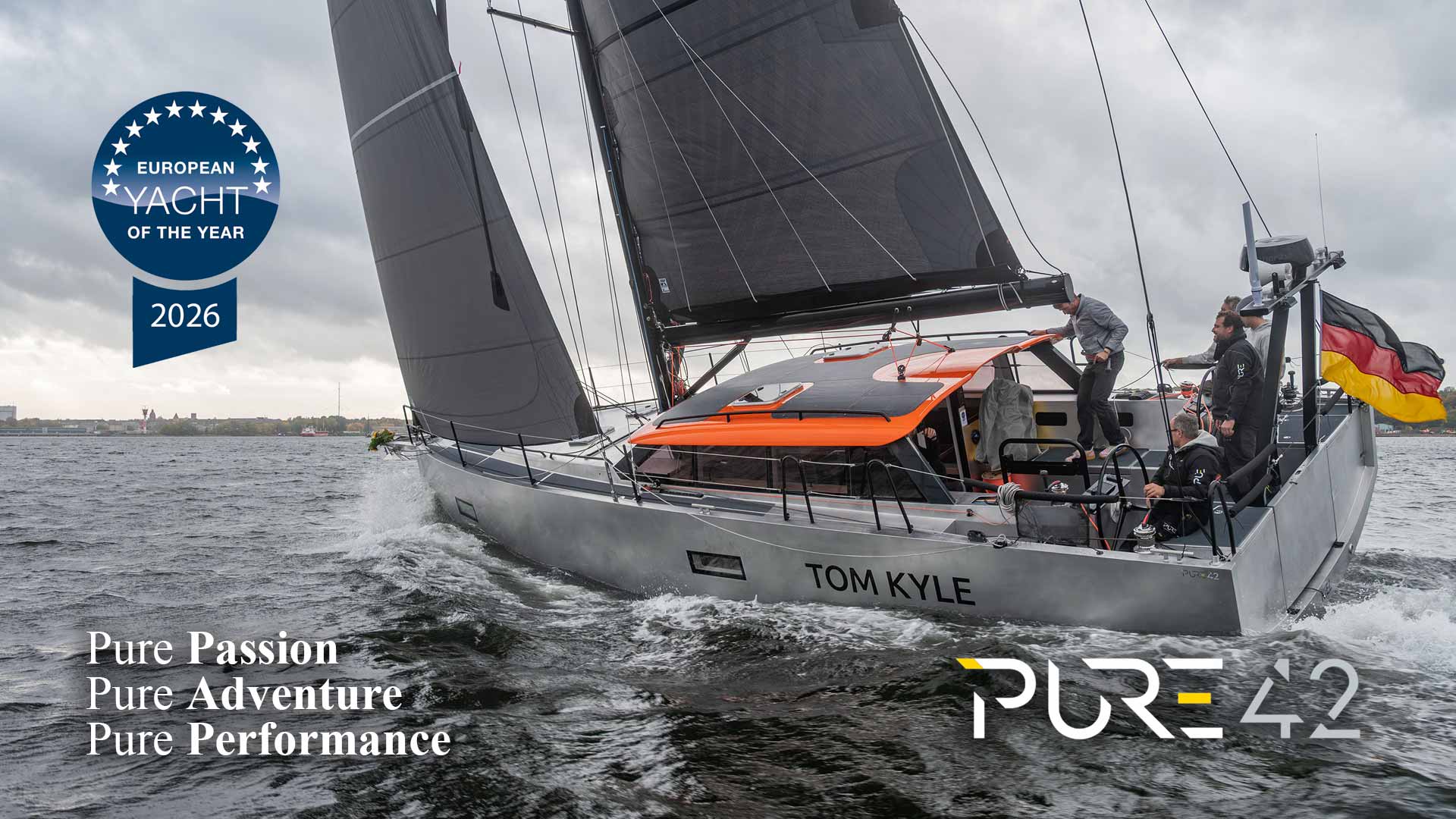
Richard has seen a lot in his life as seafarer connected to sailing and yachting. There are few spots of the world´s oceans he hasn´t steered a boat through, although he takes every opportunity to explore these previously unseen corners of our earth. Born in Holstein/Germany, raised in a seafaring family in Neustadt at the Baltic Sea he knows salty waters from his earliest childhood. In his “first” life he was a pedagogue. A fact that makes the DNA of his sailing school up to the very present: He is very deliberate on choosing the scholars and instructors for his school as well as the teaching-style done here as a combination of seamanship and pedagogics.

Lars Reisberg | NO FRILLS SAILING.com: Richard, thank you for reserving time for this conversation despite your cramped calendar. We are meeting here in the premises of your sailing school in the midst of Hamburg-Altona, just 10 minutes away from river Elbe. Tell us a bit more about Well Sailing school.
Richard Jeske | Segelschule Well Sailing: Well, we are offering courses since 1992 on two locations: Hamburg, where we are right now, and Neustadt, my home town in Holstein, some 150 km north-east of Hamburg. There our yachts are based and most of the practical education takes part here. Our fleet consist of two sailing yachts right now: One X-Yachts 442 and a Dynamic 50. Two very nice boats, fast and well-suited for long-haul cruising as well as for education of skippers-in-being. And of course two more boats here in Hamburg: Meri Lejona, a motor-vessel which you already got to know whilst your SBF-course and Meri Crash, a “vessel” we use to practice MOB, sinking and emergency-procedures. Some 300 people are taking classes every year – we offer the whole variety of courses from SBF to SKS, SSS, the radio-certificates as well as cruises and individual coachings and special courses on request.

NFS.com: What would you say makes Well Sailing so special? What is unique about your sailing school?
Richard: To answer that question I don´t have to think all too long: From my point of view we have two major aspects which characterize Well Sailing most. I wouldn´t say these aspects make us much more different from other sailing schools, instead I would say I am insisting on these aspects to be the major guidelines for all my employees: First it is a strict focus on safety in all of our activities and classes. Safety is of major concern in everything we do here – to teach our clients in that way is our main priority. And second I would say that we invest a lot of money and time into the education of our teachers and skippers themselves. Here we are utilizing the latest scientific findings to educate them. Right on cue teambuilding, personnel management and so further – we don´t want to just transfer knowledge on sailing techniques and legal stuff, we want to breed good skippers. A quite holistic approach.
NFS.com: This is what I meant by describing it as the „pedagogical-DNA“ of this venture. Are these efforts worthwhile? Can you proof the success with bare numbers?
Richard: Well, one could use the nationwide failure-rate of the SBF-exams. For example, here we have some 10 per cent of all candidates failing to do the exam all in all. This number is here at Well Sailing smaller, 5 per cent. But that´s a rate which I would say is normal with other respectable sailing schools as well. Concerning the safety-topic, I do not have any numbers here, but I do hope it will pay off at last. But I am certain it does because if you read accident reports or studies from accident-researchers, especially in aviation, it´s a fact that a thoroughly working good team is a factor of safety indeed. Or a factor of disaster if they do not function properly. So I am pretty sure that our focus on safety and good seamanship is worth the effort.
NFS.com: Let´s get a bit deeper here at this point: You are actively sailing now for some 50 years, you are on the water since you have been a little child and you are running successfully one of the big and renown sailing schools here in Hamburg – tell me what is a good skipper in your eyes?
„It´s the social competence above all that makes a skipper good.“
Richard: That´s an easy answer for me too: A good skipper is technically competent, can choose from a great variety of capabilities, he can create space in which other people can experiment, can fail and can thus grow in the end. He is teambuilder, teamplayer and teamleader in one person. On the other hand, he is definitely not the proxy of God on board anymore. That´s an opinion that I have been forming and perfecting since years now. The skipper has the ability to form a real motivated team, working effectively together – out of a colorful bunch of strangers. A good skipper can listen to his crew as well. He can listen to different standpoints and opinions, he is not insisting on his point of view solely. So it´s not just his sailing skills – he has to have of course plenty of – it´s his social capabilities over all making him a good “old man” in charge.
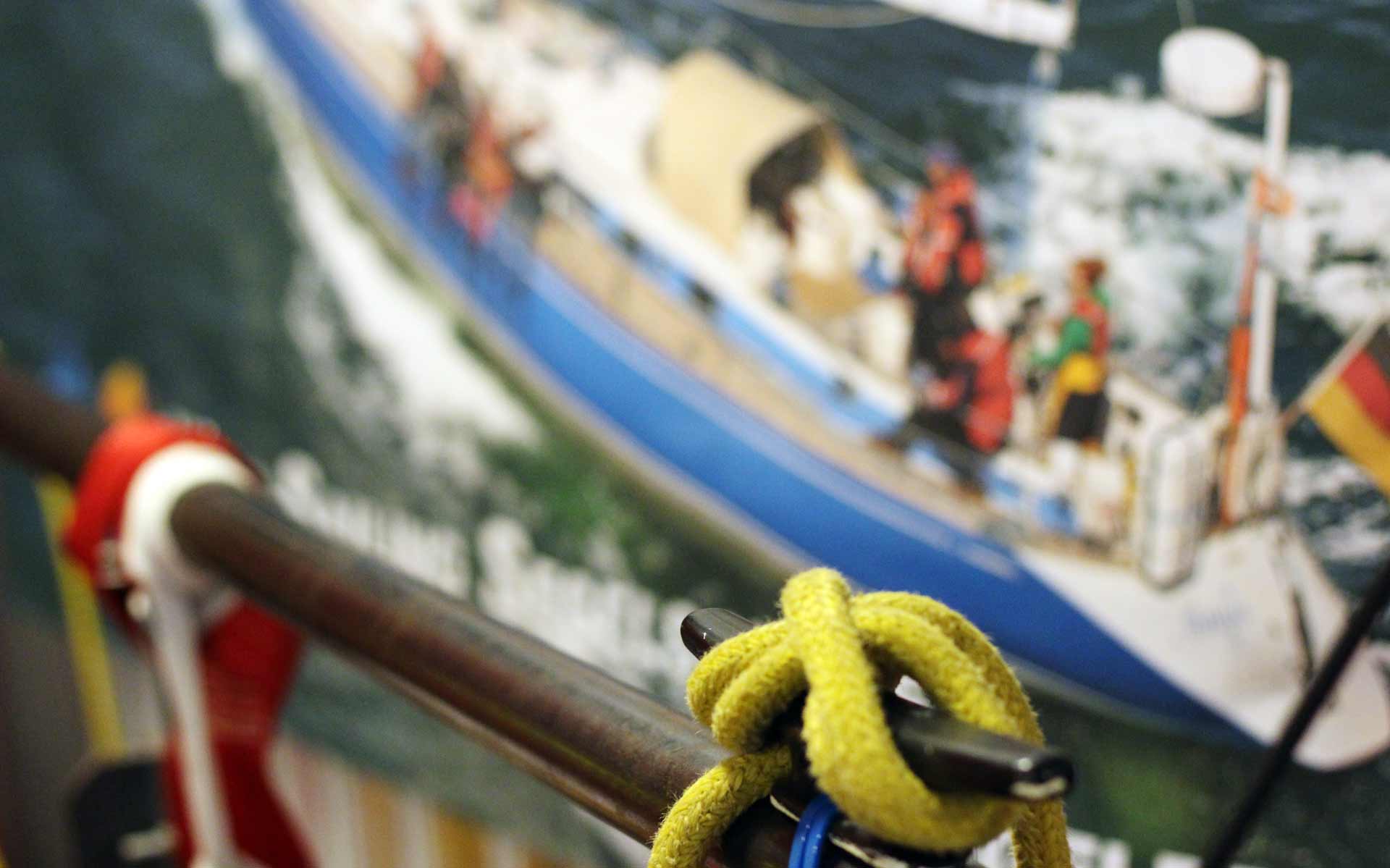
NFS.com: Why no circumnavigation? I mean, every sailor I am talking to, sailing around the world
Richard: Well don´t get me wrong: that´s not arrogance. I have been sailing boats virtually all around the world. Atlantic Ocean, Pacific, Mediterranean or Indian Ocean. But you know what? The more often I was sailing far away from my home, I got to love our northern sailing areas ever more. I love the weather, the seasons – the different seasons. It´s so manifold here, exciting and very exotic as well. You cannot find such things in the Caribbean for example: There it´s nearly always the same weather at any time. Nice warm weather, steady winds, easy to calculate. But here, up in the north it´s different. The winds, the rough climate, sometimes hot, sometimes so icy-cold. I love this multifaceded face of the north. My absolute favorite cruise is Neustadt-Helsinki. That´s a route I have sailed for some ten consecutive summers up to now. 14 days out in the Baltic, a fascinating trip especially for learning nightly navigation and being at the helm in darkness. I love to experience how days grow longer and longer, especially around Midsommar-time. And I love to witness others when they experience this for their first time. Finnland, that is true beauty, the variation between the Finnish coast of thousands of scattered small islands and open sea of the Baltic.
„Sailing is a sport mainly driven by experience.“
NFS.com: What is the optimum in educational steps or certificates to take to become a skilled yachtmaster from your point of view? What would be your recommendation to parents when and how to send their children to a sailing school – and vice versa for rookie adults like myself?
Richard: Concerning children, that´s an easy one – take them with you on board as soon as possible! There is virtually no suggestion from what month on. As early as you can take them outside, place them in a Maxi Cosy safely in the cockpit and give them stuff from the boat: A rope end or something. Children virtually suck in everything within reach, they will get used to the swell, the motions and sounds of the ship. They will watch and monitor you and the crew. That´s fascinating. And important to let them feel safe on board. As parents you cannot start too early to teach them broadly how to behave on board and how to handle a boat.
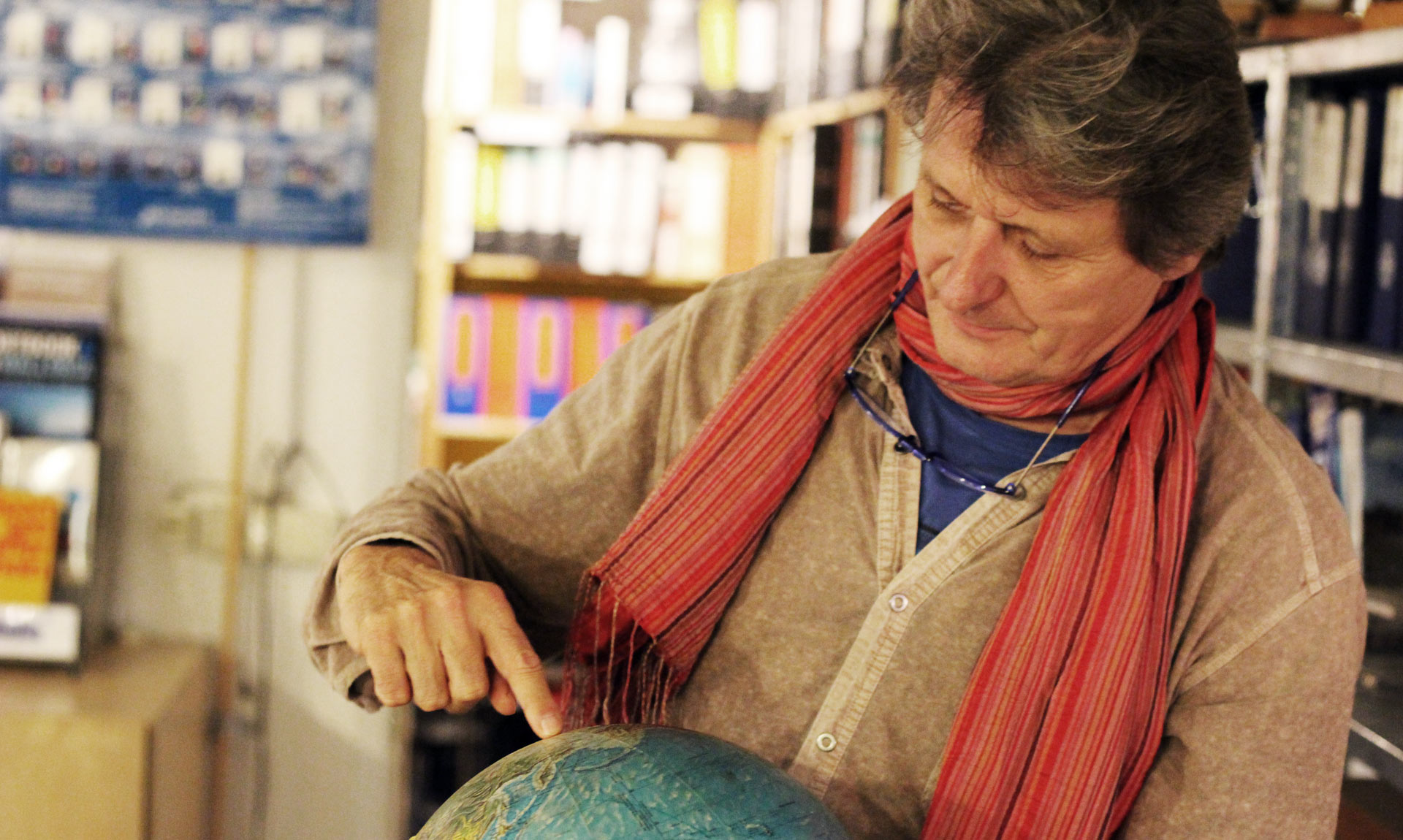
NFS.com: And then the Optimist-class?
Richard: Oh yes, definitely. I am a big fan of the Opti-Class. It is a great entrée into the world of active sailing – by the way, even for adults. I would put them in an Opti-class at the age of 6 years. You see, sailing is a very complex issue. Children younger than 6 can barely understand all the complex matters of sailing. After having made their first sailing-certificate here it´s more a question whether the kids want to proceed sailing in terms of competitive sailing-sport or in a more leisurely way.
NFS.com: … leisure sailing?
Richard: Unfortunately only very few clubs offer this kind of sailing. It´s called “Jugendboot” or “youth-boat”. The crews are exclusively made up with children and teenagers. No adults here. All matters of the boat, cruise-planning and the sailing-events themselves are managed by the youngsters. Kids are sailing alone. That´s totally exciting to witness. How do they organize themselves? How do they embrace and adopt their responsibilities for the rest of the crew? I know of a youth-boat cruise sailing from Hamburg through Kiel Canal all the way up to Copenhagen/Denmark. Just them kids alone. How cool is that? Of course, the precondition to let them go is a thorough education of the youngsters, but doing so requires string efforts by the sailings clubs which is the reason why so few offer that kind of youth-service. But for the children participating in such programs – it´s the biggest thing!
NFS.com: I can imagine that, absolutely. And what a great notion to imagine children and youngsters on board a sailing yacht doing their “adventures” on their own. But what would be your recommendation for would-be sailors like myself, being 35 or more years old, newbies on the water? My own idea was to skip the small boats and learn how to sail on board of “big” yachts from the beginning on …
Richard: Well, no, to be honest, that would not be my recommendation. From my point of view, an entrance into sailing is still best done when learned on a small vessel, a yawl. You see, on a genoa-sail of some 40 square meters you can easily have 2 tons of traction force when put in the wind. Two tons! Somebody who hasn´t got a clue … should not be in charge to command a ship with potential sources of danger like these. A yawl is manageable, is controllable. Just the right size to learn how sailing works. Another aspect to be considered here: To learn how to sail isn´t a matter of learning new hand movements. That´s something you get used to very quickly. No, what is really new is orientation. And of such, a newcomer must learn three at once: Orientation o board, orientation in space and orientation of oneself in relation to the wind. That is the real complex thing for the newcomer. I think it´s pretty clear that you will this stuff easier when going from small to big, don´t you think? From small to big, from easy to complex.
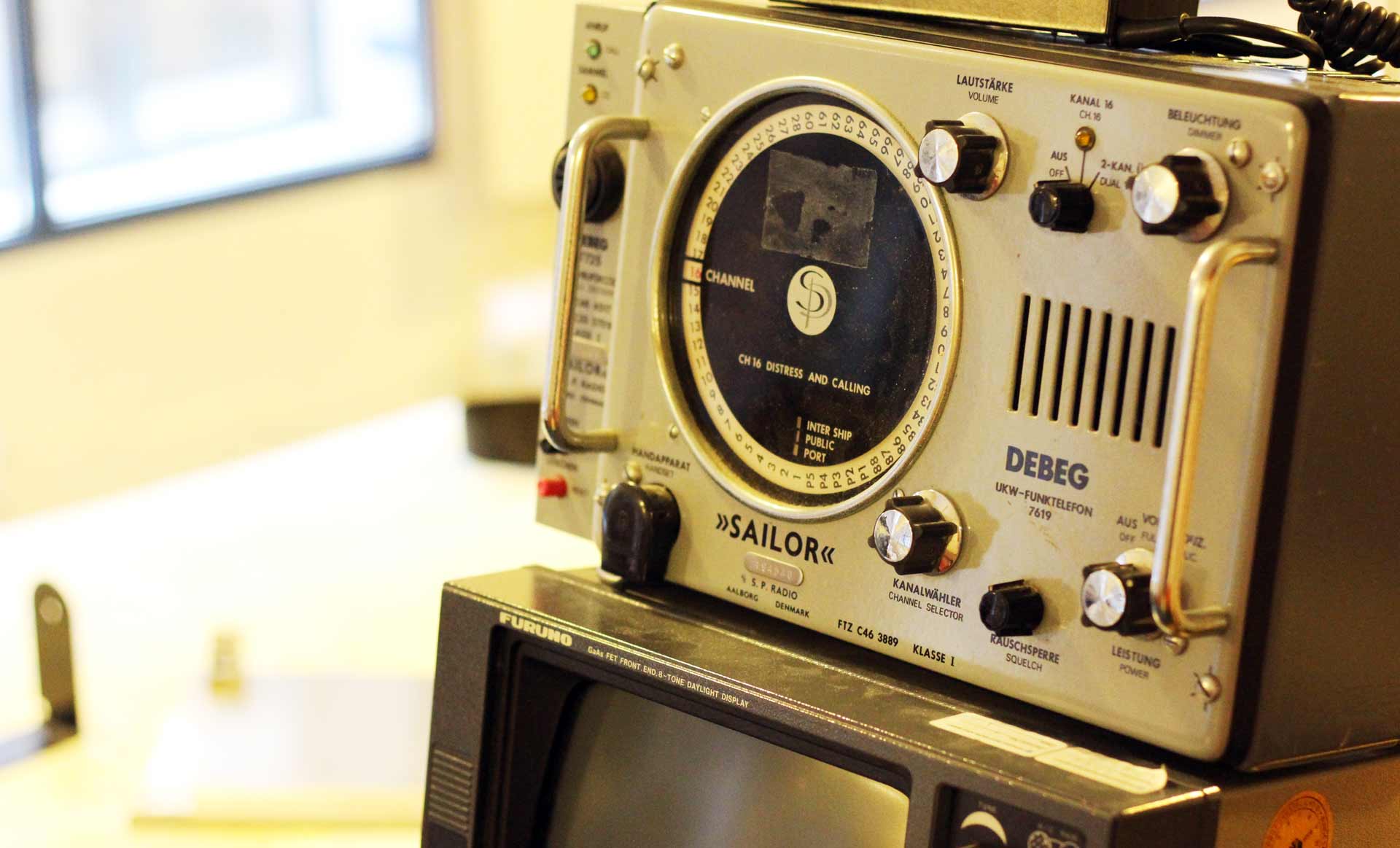
NFS.com: So you say first on board a yawl, then a yacht?
Richard: Definitely, yes. But I would recommend to set your feet on board a yacht right after you´ve completed the beginner´s class on a yawl. Continue to sail, to convert you learned stuff into practical skills, do the next step quickly. My experience shows that most of the newcomer have the following career: They do a sailing cruise with friends and get to love sailing. They attend the class for SBF (the first, mandatory certification in Germany) and right after that the SKS (complimentary to RYA Coastal) because bi charter-firms want to see those two certificates.
NFS.com: I would agree, that is what friends of mine tell me as well …
Richard: … but there´s the crux of the matter: The SKS, or RYA Coastal Yachtmaster in respect, is a certification for already skilled sailors. It is not meant to learn sailing, it´s meant to foster skills and bring them onto a new level. Sure, you can learn how to sail a yacht while doing your SKS, but the point here is, answer yourself this one single question honestly: Can my capabilities really live up to the requirements on board a sailing yacht? Am I really ready to take command of a ship? To be responsible for other people, my family, my children or guests? Can I steer and handle the boat in a safe way under ever changing and most demanding conditions? You should never forget: Out there on the sea you are exposed to factors which are clear-cut stronger than you and can be very, very severe and violent. Sailing, in it´s inner core, is a sport of growing experiences. You should expand your horizon step by step, every time a little more. Expand it slowly – just like from the yawl to a yacht. From a small yacht to a bigger one. Can I really handle all matters of seafaring alone? Take the responsibility as a Captain for everyone on board?
NFS.com: That sounds so huge …
Richard: Oh, that is a huge thing indeed! It is a truly soaring and awe-inspiring experience to ride the oceans of course. And that’s why, from my point of view, before you get out there on your own, as a fresh baked skipper, maybe just having completed your SKS or RYA Coastal Yachtmaster – try to incorporate as many know factors as you can, don´t experiment too much. Start with a know route during known weather- and sea-conditions. Don´t try North Sea´s strong winds on your first ever cruise alone. I think flotilla-sailing is a great opportunity too. It combines the safety of being part of a larger group with being under sail on board alone. Especially sailing parents with their children should take into consideration the special demands of kids. Children are very empathetic. They seem to sense even the slightest issues like shakiness. That will be transmitted and transformed fast into fear, which would be very sad. Sailing with kids must not be an experiment, should never be used for your own expansion of horizons.
NFS.com: Okay, Richard, you got me – you´ve just sold another yawl-class … (I do laugh)
Richard: Yeah, right. But it´s worth it, you´ll see.
„The widespread faith in technology makes me shiver.“
NFS.com: What was sailing like let´s say 30 years ago compared to nowadays?
Richard: This is really an interesting question. First of all it´s very clear to me that people have a very different style of utilizing their spare time. Years ago it was the one hobby you would have – your whole life. You´d be sailing and sailing solely. The boat would be the center of your spare time activities. That has changed dramatically. Today people love to have multiple hobbies. They do sail occasionally, but in winter they are passionate about snowboarding, next year it´s a safari and another year it´s a whole new hobby. That´s different to the “old days”: I do notice that there are fewer and fewer sailors of the old style. But at the same time the number of people interested in sailing – at least partially as one of their multiple activities – is growing.
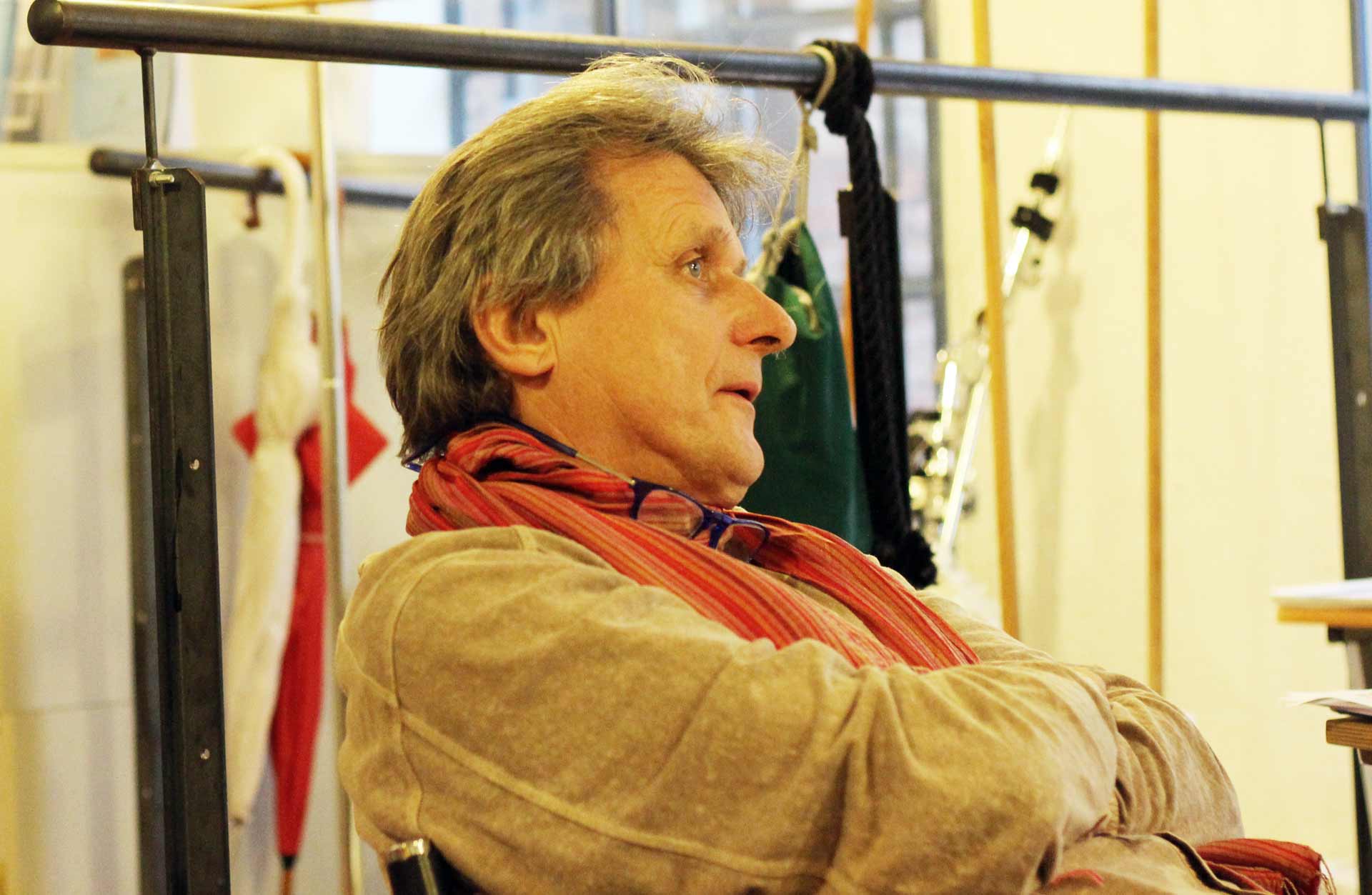
NFS.com: And that is good or bad in your eyes?
Richard: Well, there are different characteristics to it. I find it very positive – especially from an economic standpoint – that sailing schools have a far larger target group, far more clients. That´s very attractive for businesses like mine. We also do have a far bigger stake in the charter business than 20, 30 years ago. It´s an enormous market – and one which grows. Today people with very different backgrounds and educational levels meet on board. Skills are broadly distributed – as a skipper you must adapt to this situation and ought to see the qualities in each and every one and combine them.
NFS.com: What are the negative aspects?
Richard: I think that´s pretty clear: More and more people are less and lesser educated, have fewer skills and thus cause more and more damage to boats. Ironically – and thank God – without rising death- or injury-rates. But you can notice a sharp change concerning emergency- and accident-situations. People without skills on huge yachts. We use to call them “Kamikaze-Skippers”.
NFS.com: Is that the difference between an yesterday´s skipper to now?
Richard: If you would look onto this situation superficially, yes. Sure. But there´s another aspect to it, let´s call it aging. Just 10 years ago the average age of my clients was 35 years. Your age. But right now, last year, it was 45. Just take a look onto the berths of a marina: Grey haired people all over the place. But the most important thing from my point of view is a different one. It´s this awful faith in technology. Pushed by the industry the boats become more and more complicated in terms of micro-chips and computers. Industry is chatting up the people that there is nothing more easy than to control a 50-feet-yacht with a few knobs and an app on your iPhone. Well, it´s of course no problem as long as those technical features are working properly. And they do in 99 out of 100 cases. But if something goes wrong, there you have it: Shorten your mainsail when a storm is approaching, your electrical winches are gone or – worst part – navigate just by hand. For most skippers, and I hate to say that, situations like these lead to absolute collapse. That is what I am fearing the most today.
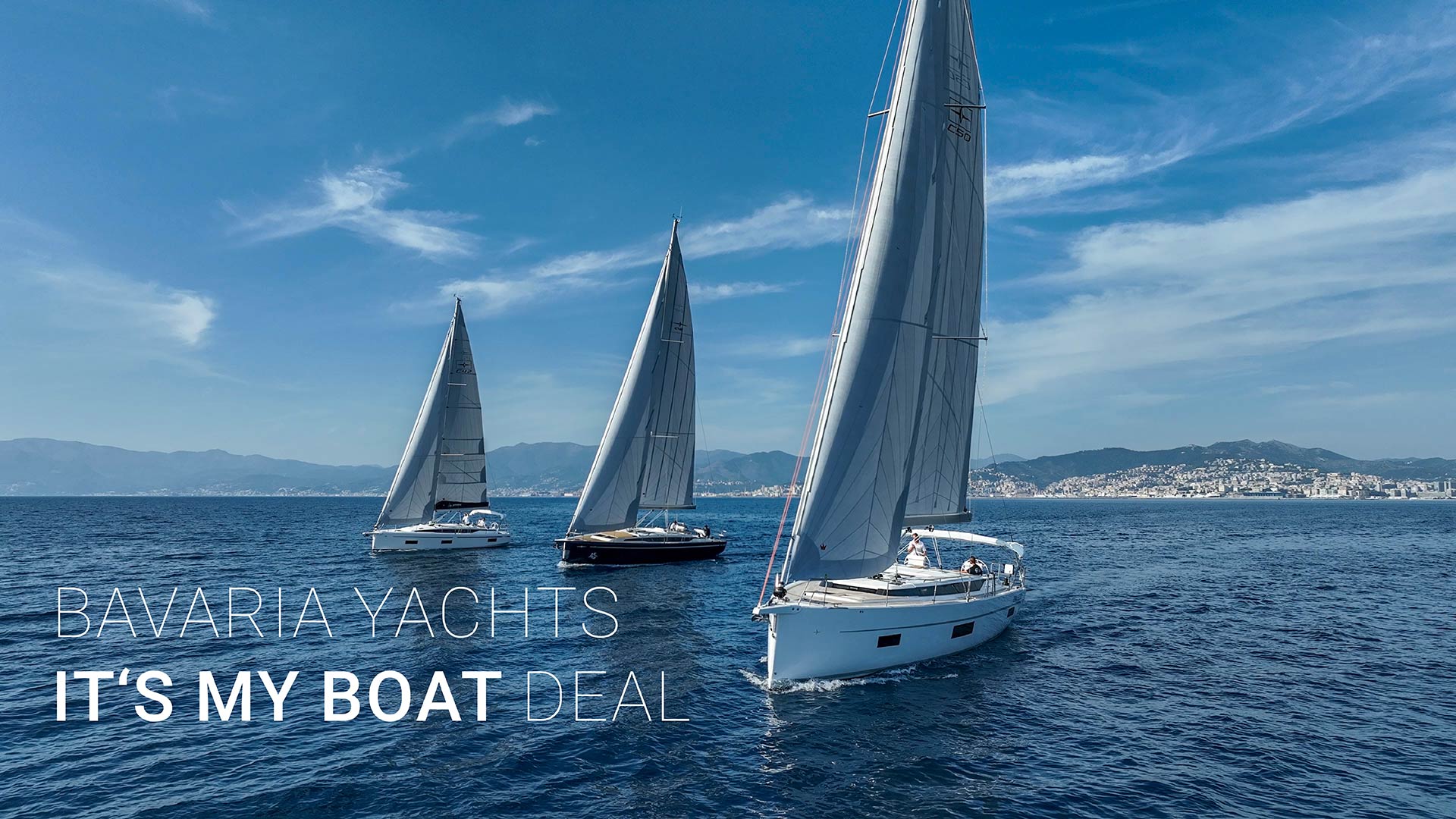
„In the end it wasn´t that bad, but initially I had this intense, pure and real fear for my life.“
NFS.com: Speaking if fear – did you have one of these “1 out of 100”-moments yet?
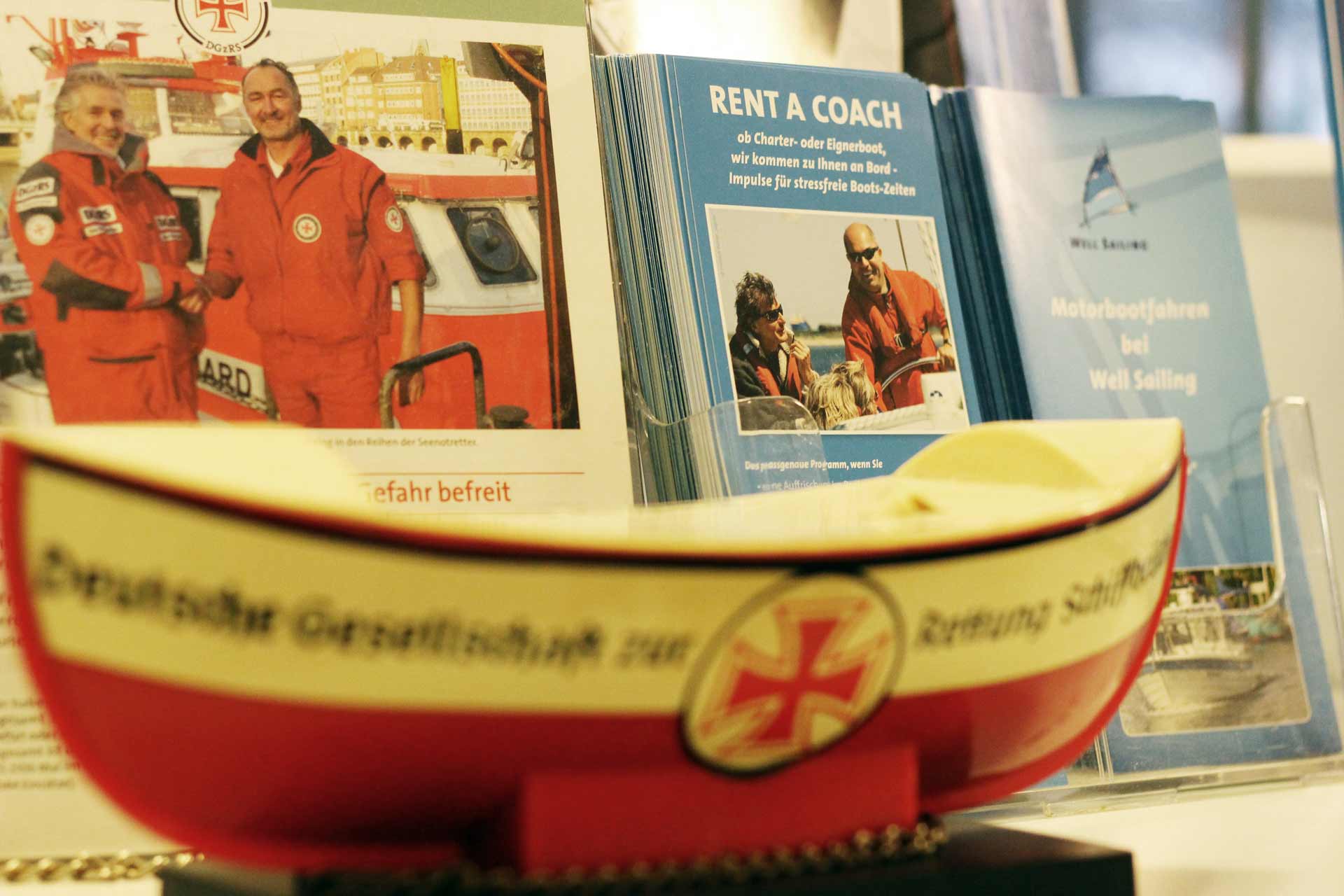
Richard: Oh yes, I did memorize this particular situation very sharply and I won´t forget this for my whole lifetime. It was a trip with clients on high seas, a transfer-cruise from the Island of Fehmarn to the Canary Islands. Early November. I was at the helm when from under deck a scream came for me. I rushed down, the crew gathered around the barometer, staring at the needle. You could see the needle falling. Very rapidly. Right there it was falling like nothing. I was able to watch air pressure dropping with bare eyes! There it was, so clear, so pure: Just bare fear for life. It was shooting through my whole body right down to the bones. Pure fear of death. I thought hell would break loose in a few moments.
NFS.com: But it didn´t?
Richard: Oh sure it did, of course. But not that bad as I was anticipating, pretty bad, but not unmanageable. But this moment when I saw the needle coming down – I thought that the prospect for all of us to not being able to get out of this mess well and alive was real. You are doing everything you have to do to bring boat and crew safely through the storm, but you realize that your options are very, very limited.
NFS.com: Wow. At the end, Richard, what is a dream-yacht for you? If you´d have free choice, which yacht would be on your wish list?

Richard: Well, you know, my absolute dream-boat would be no longer than 7 meters. 24 feet. A small daysailer. Not a complex ship but a no frills boat. Just casting off and bring the canvas in the wind – and away. Easy. Fast. Pure sailing. Somehow get this boat to the Finnish coast and then a weather with very calm winds, no swell and somehow trying to catch the knots. Gliding smoothly through the small islands. What a perfect sailing day would that be?
NFS.com: Yeah, I can imagine this. Richard, thanks for this very interesting and entertaining interview. I think, I do have a more concrete picture of what a good skipper is all about – and a clear vision which steps I should further take to becoming one by myself. Thanks.
More on Well Sailing is to be found on the Internet-Website here (in German)


